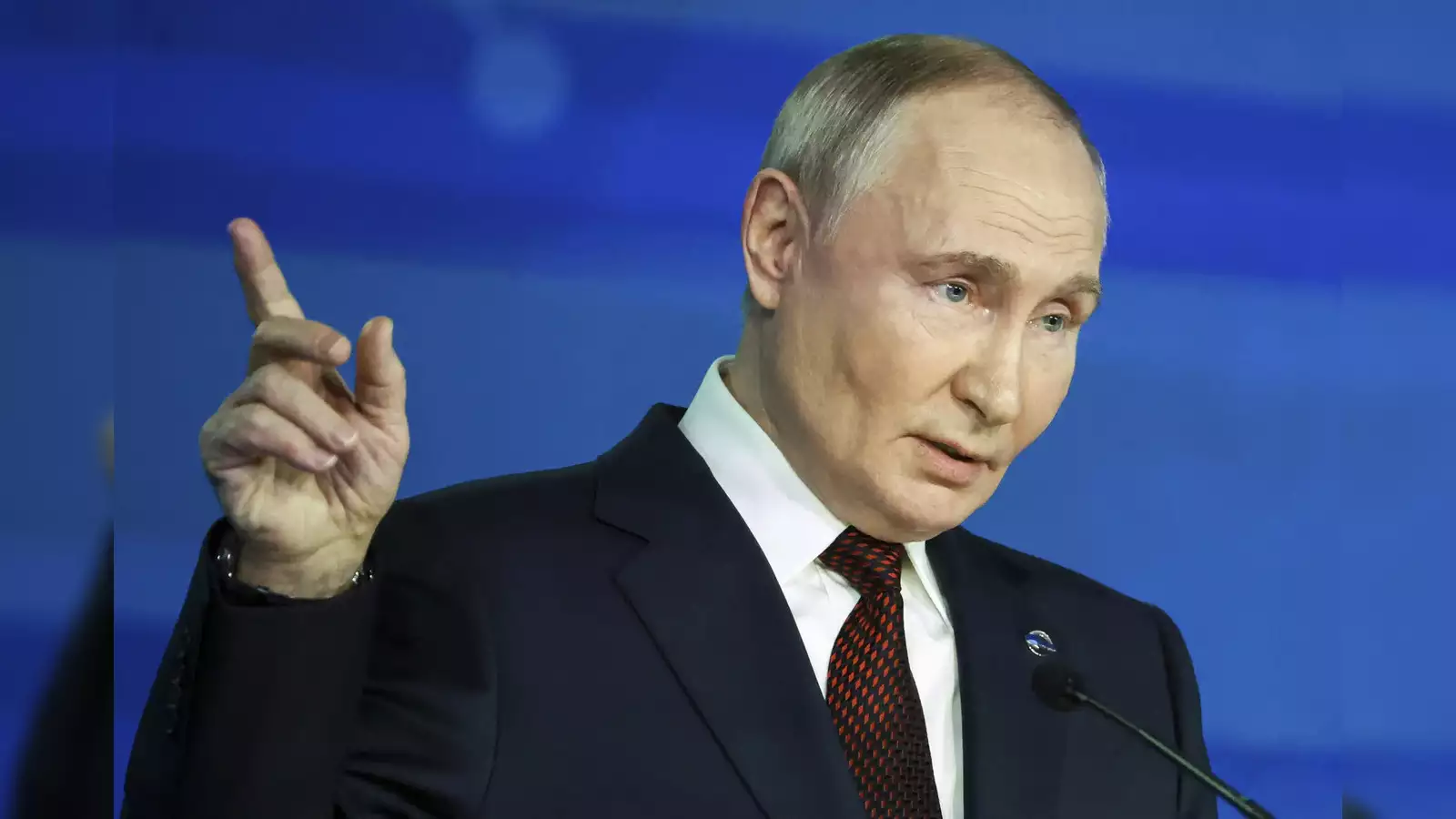Russian President Vladimir Putin issued a new, blistering warning to Western nations yesterday as Moscow’s military campaign against Ukraine stepped up in intensity. This came after a new wave of missile strikes hit Ukrainian infrastructure Tuesday, boosting tension that has gripped the region for over a year.
Escalation Amid Growing Tensions
According to reports, the latest missile strikes are targeting Ukrainian critical energy and military infrastructure. Civilian casualties occurred during this strike, although figures are still not confirmed; power outages were reported in several regions and some residential areas.
Putin’s warning comes as the West, mainly through NATO and other allied forces, has increased its flow of military aid to Ukraine. Moscow has protested the improvement of Ukraine’s defensive capabilities caused by this advanced weaponry and financial assistance. Speaking on television, Putin accused the West of “fuelling the flames of war” and vowed that the West would face “unpredictable consequences” if the supply of equipment continues.
Directed at Breaking Ukraine’s Will
Military experts believe the latest attacks are but a subset of Russia’s broader plan to destabilize Ukraine while it is on the brink of winter. The strategy is to impact the energy system, weaken public morale, and exhaust resources so Kyiv can come to the negotiating table on unsatisfactory terms.
The Kremlin has continuously denied that civilians were targeted, insisting its actions target solely military sites. However, such acts have been condemned by human rights groups as violations of international law, pointing out the intentional targeting of civilian infrastructure.
Global Response
The international community has condemned the missile strikes, as the United States and the European Union reiterated their support for Ukraine. NATO Secretary-General Jens Stoltenberg labeled the attacks as “acts of aggression” and urged member states to speed up the delivery of military aid.
The leaders of the G7 vowed Thursday, in a joint statement, to hold Russia accountable for what they described as “war crimes” against the Ukrainian population. The economic sanctions against Moscow are expected to squeeze tighter, targeting critical sectors such as energy and finance.
Putin’s Calculated Warning
Putin’s warnings to the West underscore his view that NATO involvement directly threatens Russian security. While not saying how he might retaliate, experts warn of cyberattacks, energy supply disruptions, or military escalations in other regions, such as the Baltic or Black Sea.
It has also hinted at strengthening strategic alliances, much as China and Iran are doing, to counter Western influence. Officials pointed to growing defense ties, from arms deals to joint military exercises, as proof of the country’s ability to resist pressure from the West.
Resilience of Ukraine
Despite these challenges, Ukraine has been incredibly resilient. President Volodymyr Zelenskyy condemned these strikes, calling for even stronger international unity. Tactical gains continue to be made by the forces of Ukraine regarding territory, where they reclaimed several territorial areas and undermined Moscow’s strategic goals.
Outlook
Escalation takes the stakes to a new level for all parties concerned. Russia’s missile strikes and Putin’s warnings herald the return of a broader geopolitical struggle in Ukraine. And so, without a clear end, the world waits with bated breath for the international community to intercede to prevent further devastation in the area.















